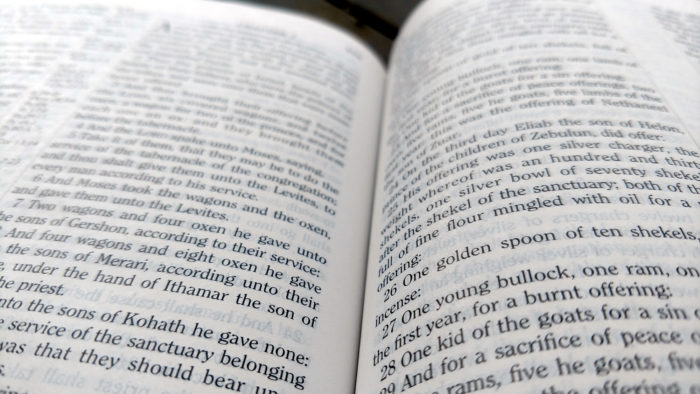The Bible’s Most Boring Chapter?
Leviticus gets a bad rap as Scripture’s most boring book, especially when the Bible’s most boring chapter of all time arrives just one book later.
You see, Leviticus, for all its seeming aesthetic faults, is at least delightfully weird (on first reading). It has blood, guts, bloody guts, and lots of sacrificing and sex. Leviticus also offers pleasant variety and organization at the same time. It follows a symmetrical pattern about rituals, sacrifices, and priests, with Day of Atonement details in the center (chapters 16 through 17).1 If you tire of priestly ordainment policy, just wait for the next chapter for plenty of intriguing sex laws.
After Leviticus comes Numbers. Somehow I had recalled that Numbers is like a lower-budget sequel to Exodus. It offers a few more miracles, social tensions, and rebellions. It even has an outbreak of blankety-blank snakes on a blankety-blank desert plain.
Well, Numbers has those things. First you must get through a lot of seemingly random legal and historical addenda. This includes Numbers chapter 7. Which offers a fastidious account of who gave what for the first Tabernacle.
This was the template for seven the chapter of Numbers:
On the [ordinal number] day [X] the son of [Y], the chief of the people of [Z]: his offering was one silver plate whose weight was 130 shekels, one silver basin of 70 shekels, according to the shekel of the sanctuary, both of them full of fine flour mixed with oil for a grain offering; one golden dish of 10 shekels, full of incense; one bull from the herd, one ram, one male lamb a year old, for a burnt offering; one male goat for a sin offering; and for the sacrifice of peace offerings, two oxen, five rams, five male goats, and five male lambs a year old. This was the offering of [X] the son of [Y].
Repeat 12x. Really.
And people claim that modern praise-and-worship choruses are repetitive.
Seriously, I understand why Scripture offers these details—even repeated, over and over, in an age when scribe time and resources were strictly limited. God is still establishing his chosen people, Israel, as a nation. All these minutiae, no matter how trifling, will matter to their descendants. Especially when it comes to facts like which tribe gave what for the Tabernacle. Best I can tell here, every tribe gave the exact same resources. Which, on first reading, indicates two very important truths:
- Every detail about the formation of the Tabernacle, God’s dwelling place on Earth, matters a great deal.
- No tribe descendant of the future could claim some special spirituality; every tribe gave the same stuff.
The ESV Study Bible notes:
The exact repetition of the donations of each tribe underlines that all the tribes were equally committed to supporting the tabernacle. It is also noteworthy that, as in chs. 1–4, the tribe of Judah takes the lead (see notes on 1:26–27; 2:1–34).
Still, even in the book of Leviticus, I’ve not yet found an aesthetically duller portion of Scripture. Maybe next time, I shan’t try to read it aloud.
- My wife and I are following The Bible Project app and reading plan through the whole Bible in a year. Their animated intros to biblical books and themes are top-notch. We found the Leviticus intro video very helpful to getting you almost psyched for the book. ↩













Share your thoughts, faithful reader (and stay wholesome!)